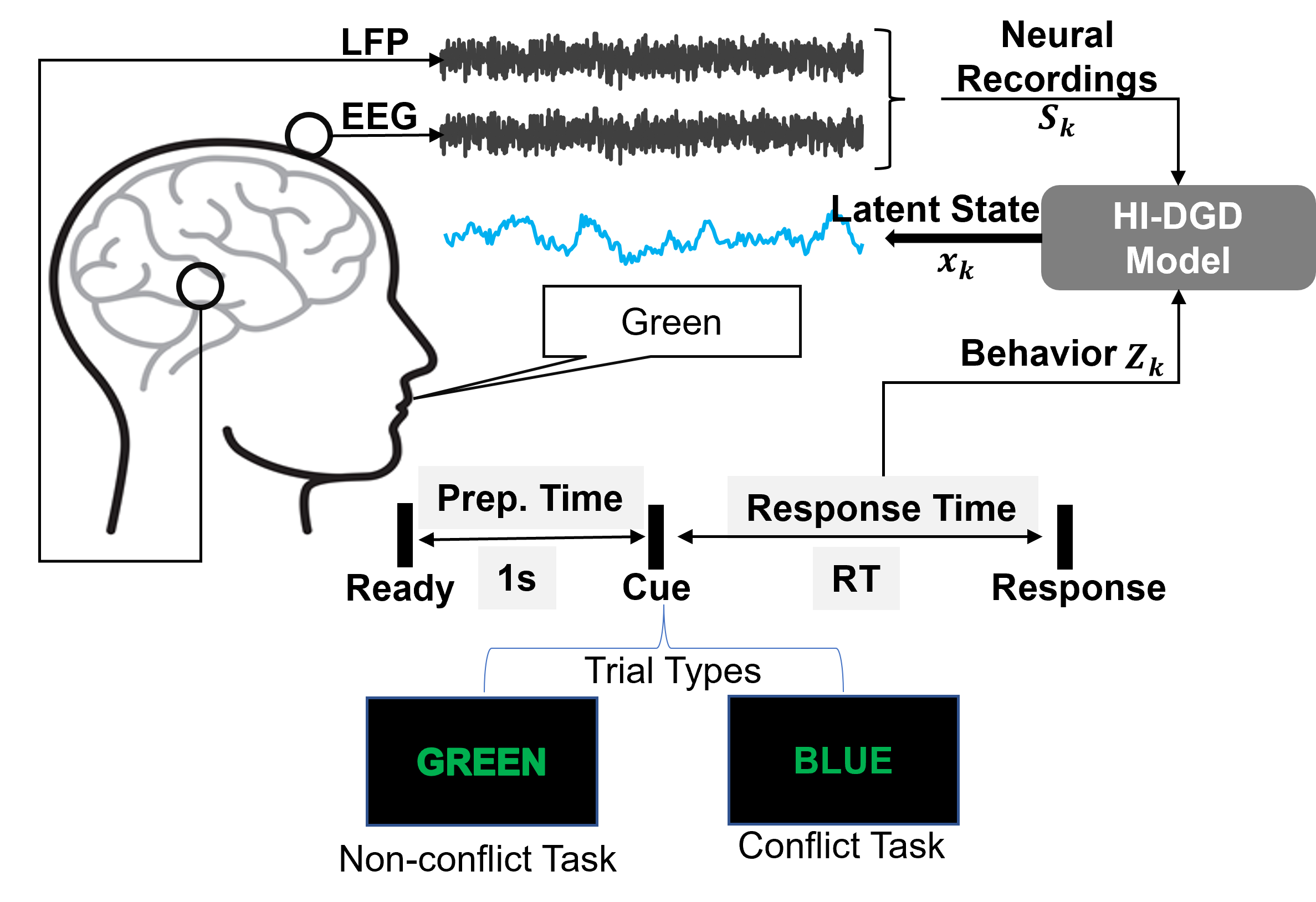16 January 2024
09:30 - 11:00 AM
4KD503
Mohammad R. Rezaei
Internal KCN: Inferring latent brain states from neural and behavioral signals in patients with Parkinson’s disease
Abstract: Human cognition is expressed as complex dynamical interactions between distributed brain areas operating in large-scale networks. Parkinson’s disease (PD), as the leader among the fastest-growing neurological disorders, directly impacts the cognition abilities of patients including resting tremor, muscle rigidity, bradykinesia, impaired posture, and speech/writing issues. Neuromodulation offers optimal ways to reduce symptoms of this disorder by perturbing (modulating) the activity of neurons in a specific region of the brain. To efficiently interfere with the brain and restore brain function, we need to identify the dynamics underlying neurological disorders and adjust neuromodulation parameters when symptoms are predicted to appear. However, the dynamics underlying neurological disorders cannot be easily extracted from high-dimensional recordings of neural activities and associated symptoms. Mathematical modeling and inference methods should be developed to infer representative biomarkers underlying neurological disorders. In this research, we propose a computational framework to infer a cognitive state, a low dimensional representation underlying the interactions between high-dimensional neural activities and behavioral signals, which can be used as a control signal in neuromodulation system to perturb the brain’s circuit’s activity with the purpose of changing state of the disease or cognition. Specifically, we propose a computational model, called the heterogeneous input discriminative-generative decoder (HI-DGD) that is able to decode a cognitive state from both neural and behavioral signals simultaneously. Then we investigate how a neuromodulation system can use this inferred cognitive state to perturb the brain circuit’s activity with the purpose of changing the state of cognition. We focus on applying the proposed computational framework on neurological (e.g., local field potentials (LFPs) and electroencephalography (EEG) and behavioral signals recorded from patients with PD during selected cognitive tasks to infer decision state. We also investigate how closed-loop neuromodulation can change the cognitive state underlying decision making with the purpose of improving cognitive ability in PD patients.

